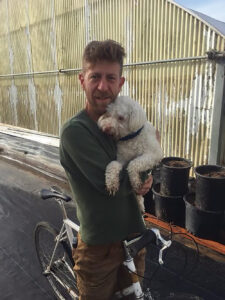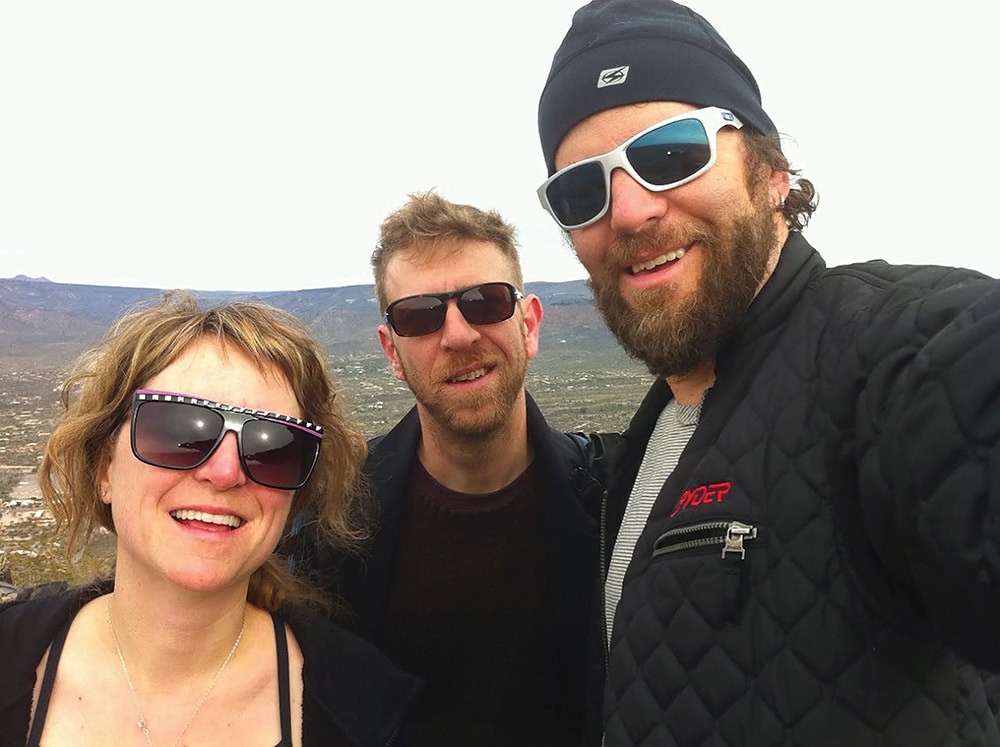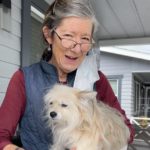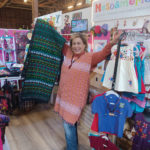Being the family member of a homeless individual is a devastating experience. This month, I share the story of Nathan and the family he left behind when he passed away in November 2020, at the age of 50, from a fentanyl overdose. Nathan had been living in a homeless encampment in Northern California for about three years at the time of his passing.
Nathan’s older brother, Mitch, sat down with me to share his family’s story of heartache and loss. By sharing Nathan’s story, he hopes other families might feel less alone and know that there are others that understand the intense feelings of helplessness and grief when trying to help a struggling loved one.
Sheikh: Tell me about Nathan and your family. Where did you all grow up? What was he like as a kid?
Mitch: We grew up in the East Bay in a pretty typical middle-class family. We went to church regularly, and along with our younger sister Rachel, we actively participated in our church’s youth camp. At home and through church, Nathan became skilled at building and construction. In our mother’s words, he was “a sensitive soul, one who loved to invent, create, and build. He was quick to fix and tinker, often with found objects.”
We were raised in a stable household and were part of a happy and loving family.
How would you describe Nathan?

Nathan living in Santa Cruz in 2019. He would die of a fentanyl overdose the following year at the age of 50. (photo courtesy Mitch Riggin)
He was incredibly creative and super talented. He would create artwork that was just “wow.”
When I got married, he made us this beautifully intricate wood carving as a wedding gift. As he got older, he used his skills in construction and even helped me renovate some houses. I always thought he would have the time to further develop his talents.
During Nathan’s service, our minister fondly commented that Nathan had been an “angelic troublemaker.” And he was. He was a kind soul, always trying to help others, even while he was struggling himself.
Can you share your feelings and experiences supporting Nathan?
As a family, we offered resources and provided what we thought were solutions. During one of his downturns, he wasn’t living with our mom, so he was living in a pickup truck. We were all concerned about how cold it got at night, and I helped him insulate it so he could stay warm. He eventually lost his truck due to parking tickets and ended up unhoused. Efforts like these were often met with resistance, and ultimately, nothing changed or got better, which made us feel like failures.
Frustration and anger become dominant emotions — mostly toward yourself for being unable to make it all better. The shoulda-woulda-coulda-type questions continue. You ask yourself over and over, “What could I have done differently or better?” For our mother, it was many sleepless nights and wondering how to deal with “broken promises, lost opportunities, and lost hope” when he refused help.
What is one misconception about poverty that you wish you could change?

FAMILY: Photo taken in 2012 in Arizona by Mitch Riggin (right), with younger siblings Rachel (left) and Nathan. (photo courtesy Mitch Riggin)
There’s a spectrum to homelessness. Sometimes Nathan was okay; he had a job, an apartment, a girlfriend, and looked good. Then he’d disappear for days using again, and he wasn’t doing okay, and things started to fall apart.
For whatever reason they are there, there’s so much to think about when you have a loved one living on the street. All the logistics and details of life that we take for granted.
In San Pedro, there’s nowhere to use a bathroom after 10 p.m. When I see our local homeless folks, I remember worrying about Nathan. I wonder if they are warm enough, where do they put all their stuff, have they eaten — the questions are endless.
In your experience, what’s the biggest change on a large scale that needs to happen? What are some of the roadblocks people face?
It’s unfathomable that the systems we have in place work in silos rather than in tandem to help struggling individuals. From housing systems — shelters, encampments, vouchers — to health and mental health resources, it’s all so detrimentally disconnected.
How would you describe your family’s experience for someone who hasn’t dealt with this situation? What is something we all can do to help?
People become homeless for different reasons. Getting out of that hole can feel impossible.
After my brother died, I started to pay more attention to people around me living their lives on the street. It makes you more compassionate. I make sure to acknowledge them, at the very least, look them in the eye and say hello, and when I can, get to know their stories.
Every person living like that is someone’s family. We need to remember they are humans, just like you and me.
___________________________
Mitch also shared his mother’s thoughts, and she hopes that other mothers will read about Nathan’s life and know that someone understands the depths of their pain, “We tried to help in so many ways, but addiction is so powerful. We still have so many questions. The pain will always be there, perhaps duller after two and a half years, but always there.” spt







Comments